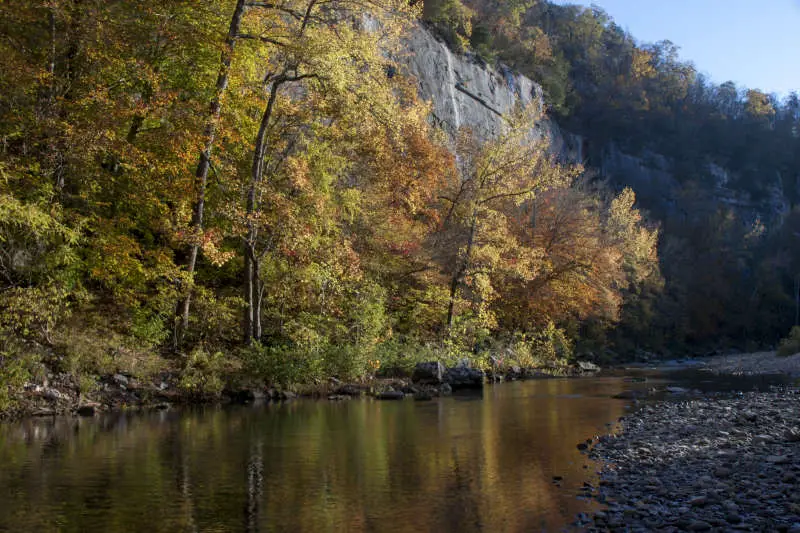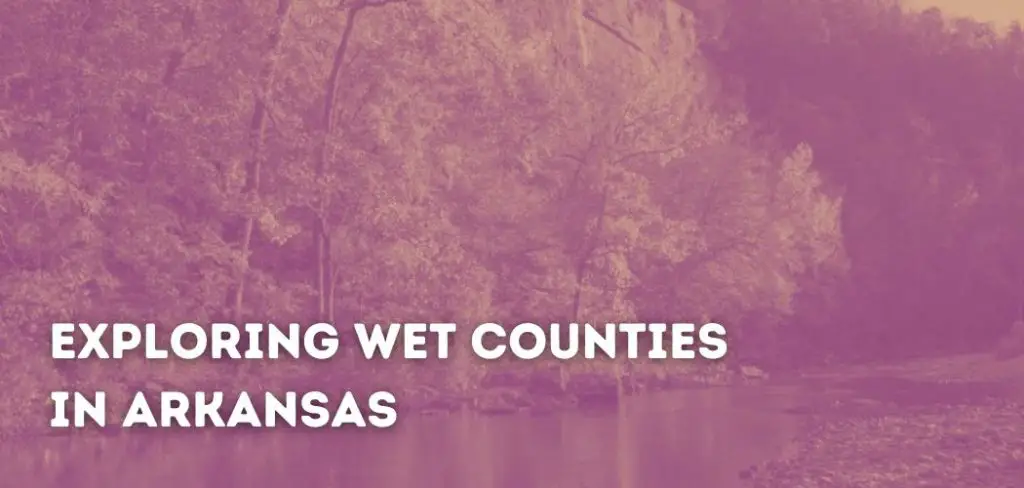The USA has been popular in its consumption of alcohol, therefore, the idea of Americans not having access to alcohol seems entirely foreign.
However, to everyone’s surprise, this is not too foreign for Arkansas citizens as it comprises many dry counties.
As per the stats, there are 34 of 75 counties termed dry counties.
Because of the scarcity of alcohol present in the county, the citizens are forced to move across the state or county borders to get their hands on it.
This makes alcohol buying even more expensive for the citizens and even for the counties that have to miss out on tax revenues, and commerce by limiting or prohibiting the selling of alcohol.
Does Arkansas have any dry counties?
Even though prohibition in Arkansas ended approximately a century ago, it remains on the list of the driest states among others.
The battle of dry vs. wet states has been ongoing for decades, even so, there seems to be no sign of it ending.
Although unlimited attempts were made to convert dry countries to wet they remained unsuccessful.

Though there has yet to be an attempt to convert wet county to dry, it would also face the same level of hindrances.
The multiple campaigns revolving around alcohol have multiple support groups and similarly multiple parties opposing them.
This has caused the cases to remain stalled.
Is Arkansas a dry or wet state?
Arkansas is the state with the highest number of dry counties in the U.S., it has had several laws and regulations from time to time to handle alcohol over decades.
In 1933, the prohibition ended which led Arkansas to be wet automatically.
Further, in 1942’s started act 1 offered counties the choice of going dry.

Arkansas over the years with patchwork laws, makes the citizens fight for their right to party.
They require 38% of registered voters to sign the petition in order to attain the option of a county going wet.
Can you drink in a dry county in Arkansas?
As per the law, dry counties do not hold the right to operate bars or sell alcohol at stores.
Arkansas has been a state with the highest number of dry counties among other states in the U.S.
However, over time, there is still dispute over some counties but some stats state that 44 of 75 counties are wet.
There stand several overhauled alcohol laws all across the state.
However, restaurants may serve alcoholic drinks if they have a permit.
There are special permits for population centers like Conway and Jonesboro in Craighead and Faulkner states.
Therefore, you would see a lot of bars and grills there.
Why are so many Arkansas counties dry?
Many people wonder why dry counties even exist in Arkansas.
This query is usually answered in the financial terminology of the “bootleggers and Baptists” scenario.
This scenario describes the opposition of a county willing to convert itself from dry status to a wet county.
To this, Baptists oppose the idea based on their religious rulings.
Bootleggers oppose the idea since they earn profit from bootlegging alcohol into the dry country from wet status counties which serve alcohol.

Bootleggers are no longer the common alcohol suppliers; therefore, the present-day bootleggers are the country-line liquor shops present in the nearby wet counties.
Dr. Jeremy Horpedahl, who is an ACRE Scholar and UCA Assistant Professor of Economics, explains in his recently published paper “Bootleggers, Baptists, and Ballots: Coalitions in Arkansas’ alcohol-legalization elections”
In Public Choice, political coalitions against alcohol legalization in dry counties are frequently formed by liquor stores in neighboring wet counties, as well as churches and other religious organizations.
He notes that most of the money for these coalitions comes from liquor stores, whereas churches and religious organizations largely contribute to non-monetary forms.
Some may find a coalition of booze shops and churches fighting for a shared cause to be extremely unexpected, but the economic repercussions of dry counties maybe even more so.
According to a 2014 analysis conducted by the economics department of the University of Arkansas, total alcohol sales in Faulkner County in 2013 would have been approximately $30 million, which means generating over $100,000 in sales tax income, if Faulkner had been a wet county.
While these revenues are considerable, they will be considerably greater in 2020 owing to Faulkner County’s population increase since 2013.
The tax income earned by alcohol sales in Faulkner county might be reinvested directly in the community for its betterment, but as long as Faulkner County remains dry, its inhabitants will never see those potential tax revenues, and the same case can be made for dry counties throughout the state.
